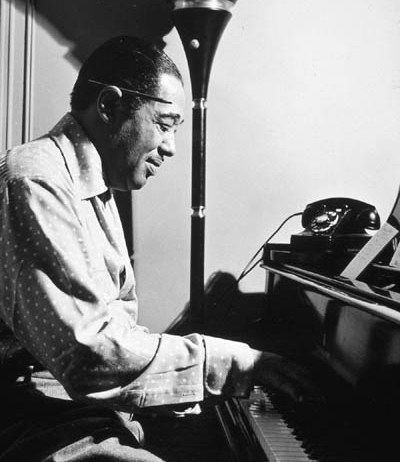In today’s Wall Street Journal “Sightings” column I discuss Vladimir Putin, homosexuality, and the Metropolitan Opera. Here’s an excerpt.
* * *
 It’s come to the belated attention of New York’s opera lovers that Vladimir Putin is a thug. Russia’s dictator-in-waiting recently signed a stack of laws whose purpose is to persecute homosexuals. Needless to say, Mr. Putin’s odious conduct, not only toward gays but toward anyone who dares to disagree with him, isn’t exactly stop-press news to those who’ve followed his career, but it was the anti-gay legislation that pushed Andrew Rudin, a gay classical composer from New Jersey, over the line. Mr. Rudin responded by posting an online petition calling for the Metropolitan Opera to dedicate its opening-night performance, which took place on Monday, to the “support” of gays in Russia and elsewhere.
It’s come to the belated attention of New York’s opera lovers that Vladimir Putin is a thug. Russia’s dictator-in-waiting recently signed a stack of laws whose purpose is to persecute homosexuals. Needless to say, Mr. Putin’s odious conduct, not only toward gays but toward anyone who dares to disagree with him, isn’t exactly stop-press news to those who’ve followed his career, but it was the anti-gay legislation that pushed Andrew Rudin, a gay classical composer from New Jersey, over the line. Mr. Rudin responded by posting an online petition calling for the Metropolitan Opera to dedicate its opening-night performance, which took place on Monday, to the “support” of gays in Russia and elsewhere.
Part of made the petition so interesting was its occasion, which was uncommonly timely. It so happened that the Met opened its season with a new production of “Yevgeny Onegin,” an opera by Tchaikovsky, who was both Russian and gay (though Vladimir Medinsky, Putin’s culture minister, denies the latter, absurdly claiming that “there is no evidence that Tchaikovsky was a homosexual”). Moreover, the performance featured two well-known Russian artists, the conductor Valery Gergiev and the soprano Anna Netrebko, both of whom are unabashed and enthusiastic Putin supporters.
About 9,000 people signed the petition, including Bartlett Sher, one of the Met’s best-known stage directors. But Peter Gelb, the Met’s general manager, declined to go along with their request. “As an institution, the Met deplores the suppression of equal rights here or abroad,” he said in a written statement. “But since our mission is artistic, it is not appropriate for our performances to be used by us for political purposes, no matter how noble or right the cause.” Not surprisingly, protests followed, both outside and inside the Metropolitan Opera House.
Who got it right? And what should happen next?
To begin with, I’m all for the picketers–though not the protesters who disrupted the opening-night performance, a piece of behavior that was anti-artistic and counterproductive. In addition, I also favor continued efforts to put the squeeze on Mr. Gergiev and Ms. Netrenko….
* * *
Read the whole thing here.
Archives for 2013
TT: Almanac
“If there is any test that can be applied to movies, it’s that the good ones never make you feel virtuous.”
Pauline Kael, “Ersatz”
TT: Duke rising
Three weeks ahead of the October 17 publication date, Gotham Books has just ordered up a second printing of Duke: A Life of Duke Ellington.
I feel festive.
TT: So you want to see a show?
Here’s my list of recommended Broadway, off-Broadway, and out-of-town shows, updated weekly. In all cases, I gave these shows favorable reviews (if sometimes qualifiedly so) in The Wall Street Journal when they opened. For more information, click on the title.
BROADWAY:
• Annie (musical, G, closing Jan. 5, reviewed here)
• Matilda (musical, G, all performances sold out last week, reviewed here)
• Once (musical, G/PG-13, nearly all performances sold out last week, reviewed here)
OFF BROADWAY:
• Avenue Q (musical, R, adult subject matter and one show-stopping scene of puppet-on-puppet sex, reviewed here)
• The Fantasticks (musical, G, suitable for children capable of enjoying a love story, reviewed here)
• The Old Friends (drama, PG-13, newly extended through Oct. 20, reviewed here)
IN NIAGARA-ON-THE-LAKE, ONTARIO:
• Major Barbara (drama, PG-13, closes Oct. 19, reviewed here)
• Our Betters (comedy, PG-13, closes Oct. 27, reviewed here)
IN ASHLAND, OREGON:
• My Fair Lady (musical, G, closes Nov. 3, reviewed here)
IN SPRING GREEN, WISCONSIN:
• Antony and Cleopatra (Shakespeare, PG-13, closes Oct. 20, reviewed here)
• Dickens in America (one-man play, G, too demanding for small children, closes Oct. 19, reviewed here)
CLOSING SOON ON BROADWAY:
• The Trip to Bountiful (drama, G, closes Oct. 9, reviewed here)
CLOSING NEXT WEEK OFF BROADWAY:
• Don Juan in Hell (drama, PG-13, extended through Oct. 6, reviewed here)
CLOSING NEXT WEEK IN SPRING GREEN, WISCONSIN:
• Hamlet (Shakespeare, PG-13, closes Oct. 4, reviewed here)
• Rosencrantz and Guildenstern Are Dead (serious comedy, PG-13, closes Oct. 5, reviewed here)
CLOSING NEXT WEEK IN NIAGARA-ON-THE-LAKE, ONTARIO:
• Faith Healer (drama, PG-13, closes Oct. 6, reviewed here)
TT: Almanac
“Courage is almost a contradiction in terms. It means a strong desire to live taking the form of a readiness to die.”
G.K. Chesterton, Orthodoxy
TT: Snapshot
Courtesy of Peter Keepnews, the Horace Silver Quintet plays “Señor Blues”:
(This is the latest in a series of arts-related videos that appear in this space each Monday and Wednesday.)
TT: Almanac
Courage is of the heart by derivation,
And great it is. But fear is of the soul.
Robert Frost, “A Masque of Mercy”
TT: Duke, here and there
 I don’t know how I missed it, but The Wall Street Journal ran a fall preview on September 14 in which “New York’s taste makers” were asked to talk about what they were most looking forward to reading, hearing, and seeing. Amazingly, I didn’t find out until yesterday that Duke: A Life of Duke Ellington was cited twice in the piece, by musical-theater star Michael Cerveris, the best Sweeney Todd I’ve ever seen, and by Maria Popova, the super-cool proprietor of Brain Pickings. Knock me down!
I don’t know how I missed it, but The Wall Street Journal ran a fall preview on September 14 in which “New York’s taste makers” were asked to talk about what they were most looking forward to reading, hearing, and seeing. Amazingly, I didn’t find out until yesterday that Duke: A Life of Duke Ellington was cited twice in the piece, by musical-theater star Michael Cerveris, the best Sweeney Todd I’ve ever seen, and by Maria Popova, the super-cool proprietor of Brain Pickings. Knock me down!
You can read all about it here.
In addition, I wrote a short piece about Duke for Biographile, an online newsletter about biography and memoir, in which I talk about Ellington’s lack of formal musical education:
Was Ellington wise to steer clear of the classroom? Certainly he would have profited from learning more about the rules of large-scale composition. He ran into difficulties when he tried to write larger, more ambitious pieces later in life, precisely because his unwillingness to learn from the classics forced him to fumble for wheel-inventing “solutions” to basic problems of musical architecture. On the other hand, Cook [Will Marion Cook, one of Ellington’s early musical mentors] steered his young protégé straight when he told him to avoid obvious solutions and go his own way. From the very beginning of his long career, Ellington did things his way or not at all, and his iron determination never to be anybody but himself was the reason why all of his music, early and late, was so powerfully individual….
Read the whole thing here.
